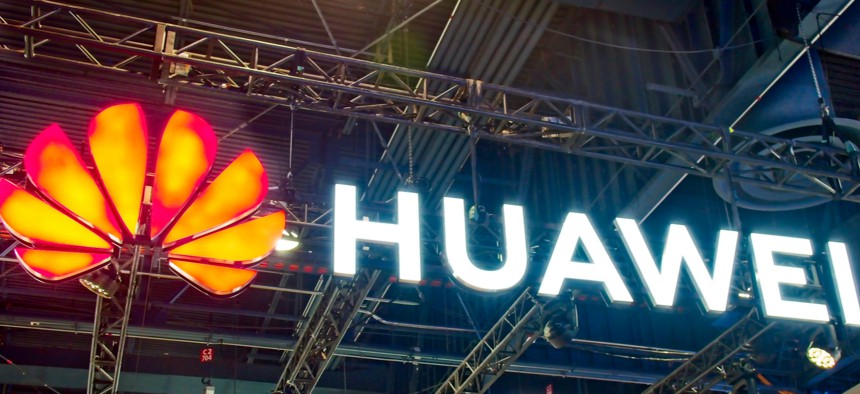
James Mattil/Shutterstock.com
U.S., U.K. Agree to ‘Further’ Restrict Huawei, Defense Secretary Says
But it’s not clear whether any actual changes emerged from Thursday’s meeting between the top U.S. and British defense leaders.
The United States and the United Kingdom have agreed to “further” reduce Huawei's presence in telecom infrastructure, U.S. Defense Secretary Mark Esper said at a Pentagon press conference Thursday.
Esper described a lunch conversation with U.K. Secretary of State for Defense Ben Wallace on the subject as “candid,” without elaborating on what form the “further’ reduction would take. He highlighted the importance of the intelligence-sharing agreement between the United States, the United Kingdom, and other Five Eyes partners.
“Opening critical allied networks to Chinese vendors that ultimately answer to the [Chinese] Communist Party could allow Beijing to access, disrupt, manipulate and misuse vital information, thus jeopardizing the integrity and strength of the NATO alliance,” he said.
Esper said U.S. officials want to work with the United Kingdom on “a way forward that results in the exclusion of untrusted vendor components for 5G networks” in the UK and elsewhere.
Both secretaries said their nations’ disagreement about Huawei was not over the nature of the threat of Chinese-manufactured telecom equipment, but about the best ways to deal with the threat.
The United States has pushed for an outright and total ban of gear from Huawei and other Chinese telecom providers.
The U.K. government has taken a less extreme position. While Huawei is banned from networks that the government considers to essential to national security, such as for government use or infrastructure, the government has allowed Huawei to take a position in the commercial market, a position capped at 35 percent of that market, with the ultimate goal of eventually cutting them out of the market entirely, a position Wallace referred to as “Ban, cap, and cut.”
The U.K. has a lot of experience probing Chinese telecommunications gear. In 2010, the government established the Huawei Cyber Security Evaluation Centre, or HCSEC, Oversight Board to better understand its threats to customer data and national security. Last March, the Center published a report that described “serious and systematic defects in Huawei’s software engineering and cyber security competence.”
It wasn’t immediately clear that the secretaries had reached any actual change in their relative positions during the meeting. The Defense Department and U.K. Embassy did not immediately respond to request for comment on the question.







